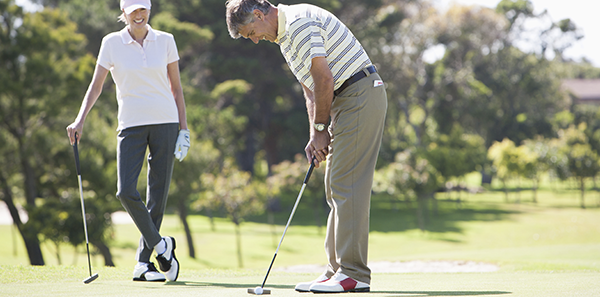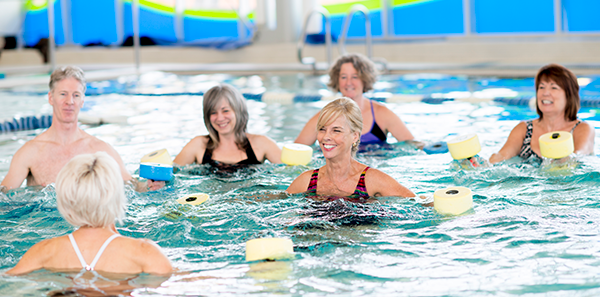
When you arrive at a golf course for the first time, you can see the wide range of ages and playing levels, from children learning to take their first swings, right through to professionals and elderly adults to have found golf to be a sport that enables you to do exercise and enjoy being in contact with nature. This is because it’s a sport that combines the best features of social, psychological and sports skills*.
Golf is a sport that people get hooked on from the very first shot. Those of us who play are always thinking about how we can improve and perfect our game. This means that professionals working in the sector, whether they may be technical experts, personal trainers or physiotherapists, are becoming increasingly well trained so they can deliver the service demanded by professionals and amateurs alike. Last year, a study* was published that reviewed 5,605 articles and researchers agreed on extracting a series of statements on the health benefits generated by this sport. Here are some of the conclusions they obtained:
- Playing golf regularly throughout life provides greater benefits than playing sporadically and is linked with increased longevity.
- Golf can reduce the risk of suffering from chronic diseases, including cardiovascular disease, type 2 diabetes, colon and breast cancer, depression and dementia.
- Golf improves strength, stability, flexibility and aerobic fitness in all players.
- Playing golf can have a positive effect on the health of people with disabilities.
- Even watching a golf tournament is a good opportunity to improve physical activity levels as you walk from hole to hole.
- Playing golf, either alone or with others, is linked to improved self-esteem, self-confidence and self reliance.
- As an outdoor sport, it allows you to enjoy nature as you play, having a positive impact on your mood, reducing stress levels and symptoms of depression.
- The health benefits are probably greater for people who walk around the golf course (if they are able) instead of using a buggy.
The annual injury rate for golf is moderate and the risk of injury per hour of play is low compared to other sports*. These injuries are often caused by bad habits (lack of stretching, not warming up properly, poor posture, etc.) and by a desire to improve that frequently causes people to push their bodies too far and do things they’re not ready for. The swing technique involves a series of physical factors that are unfortunately being lost due to an increasingly sedentary lifestyle. Professional golfers have acquired the flexibility, strength and stability that you would expect in athletes. If you try to do the same movements as they do, the most likely scenario is that you’ll get injured and not succeed in hitting the ball correctly. The extent of the benefits for health or health problems will depend on many factors such as age, gender, genetics and the player’s physical fitness, the type of terrain and how often they play*.
It would be advisable to consult professionals (coaches, physical trainers, specialist physiotherapists) before starting to practise this sport, or if you have been doing it for some time and suffering from niggles or pain, or you aren’t seeing any improvement, or just as a preventive measure, as this will reduce your risk of injury and you’ll be able to play golf better and for longer.
To conclude, golf is an activity recommended for all ages, that improves physical and mental fitness in everyone who plays it*.












